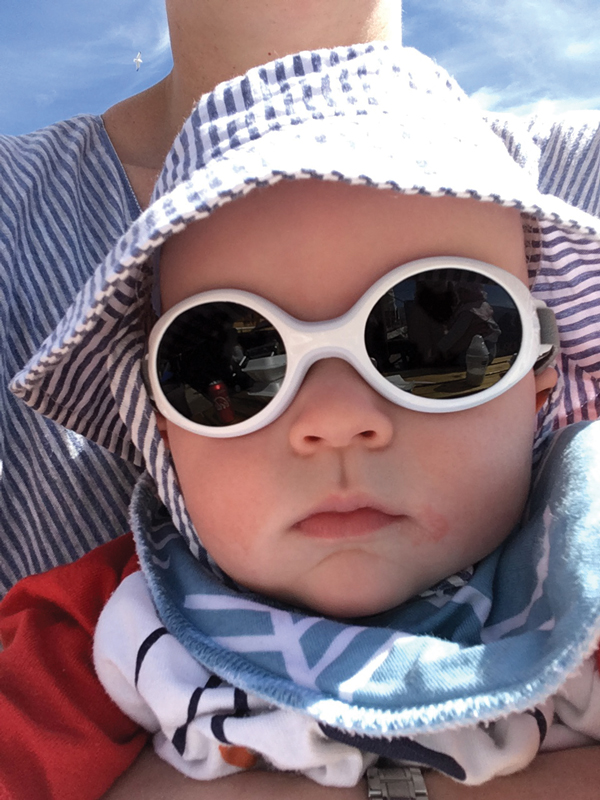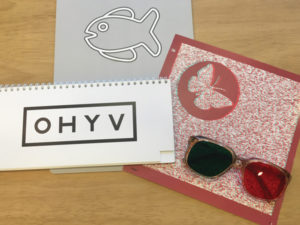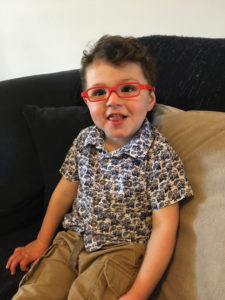
Francesca Andersson is an Optometrist at Barnard Optometrists in Hove. She has a two year old son and is passionate about children’s eye health and sharing information about good eye care. Currently one in five school age children have undiagnosed vision problems which could be interfering with their learning. Francesca would like to make sure parents have the correct information to protect their children’s eyes.
When should I take my child to the opticians?
The Association of Optometrists (AOP) recommend that all children should have a sight test around the age of three, but I recommend that children should have their first sight test at six months of age, or even as a newborn and especially if there are any concerns or family history of any eye conditions. This would enable us to pick up any eye conditions which can be treated earlier, particularly before they start school.
What happens during a sight test?
A sight test should be a good experience for a child; during the test we establish how well your child can see, if their two eyes co-ordinate well together and that there are no concerns with the health of their eyes.
Does my child need to know their letters?
No, we have a range of vision tests we can use depending on the age of the child and how confident they are during the test. Some vision tests do not even require the child to talk at all, we just look at eye movements to determine whether or not they have seen the picture.
 How much is a sight test?
How much is a sight test?
Sight tests are free for children under 16 years of age and for anyone in full-time education under the age of 19.
How would I know if my child has a vision problem?
You may not! Sometimes there may not be any signs or symptoms that your child may be struggling with their vision as they themselves may not know that what they are experiencing isn’t normal. This is one of the major reasons that it is so important for them to have a sight test regularly. Some children will show signs of a problem.
For example:
• An eye turning in or out.
• Difficulty concentrating.
• Headaches.
• Sitting too close to the television.
• Frequent eye rubbing.
Why is it important for eye conditions to be picked up early?
Children’s vision continues to develop until they are around eight years old. This means we have until this age to correct their sight and any muscle weakness to allow the vision to develop normally. If left untreated it can lead to them having a lazy eye.
What should I look for when buying my child’s glasses?
• A frame they like and are happy wearing.
• A good fitting frame that allows for growth.
• Soft plastic frames are advised for young children.
• A strap can be useful for active toddlers.
What can I do to protect my child’s eyes?
• Attend regular sight tests.
• Provide a healthy diet and plenty of water.
• Protect their eyes from the sun with a hat, suntan lotion on eyelids, good-quality sunglasses with UV protection and stop them looking in to the sun.
• Spend plenty of time outdoors – research shows playing outside for two hours is ideal for healthy eyes.
Can digital screens harm my child’s eyes?
Research shows that prolonged screen time can increase the progression of myopia (short-sightedness) so screen time must be balanced with time outdoors. There is no scientific evidence to show that blue light from screens can damage eyes but it can lead to poorer sleep if used before bed. Make sure digital devices are turned off at least an hour before bed.

If you have any concerns or questions please contact us and we will be pleased to advise you.
Barnard Associates is an established independent, Optometric practice providing clinical eye care, contact lenses and spectacle dispensing
for over 30 years.
Our Optometrists specialise in paediatric eye care and have additional qualifications to provide visual assessments associated with dyslexia, dyspraxia, ADHD and learning difficulties – we welcome any questions you may have regarding your eye health.
Phone: 01273 772 318
Email: reception@barnardassociates.co.uk











